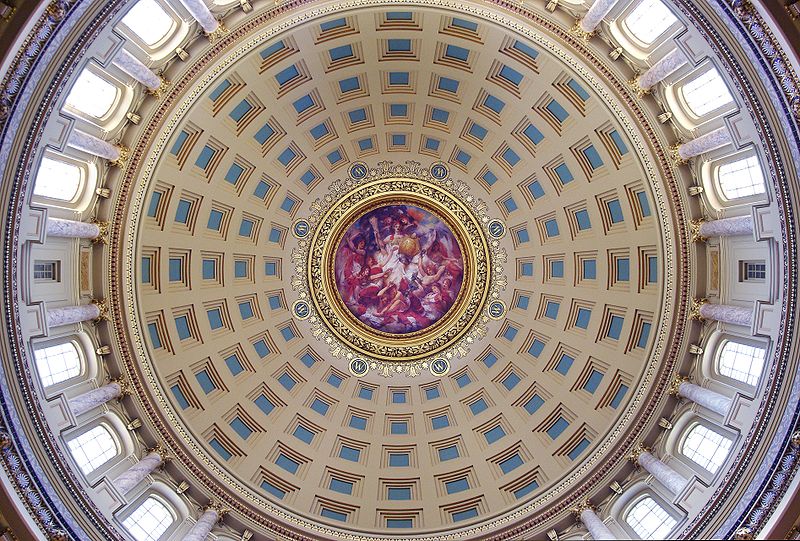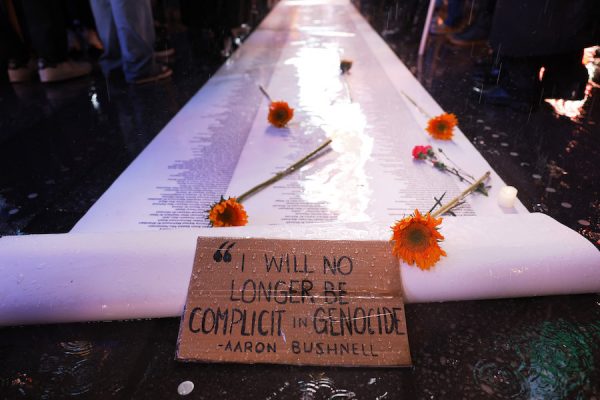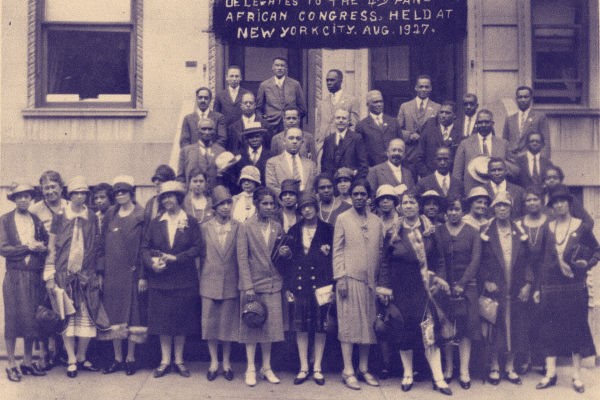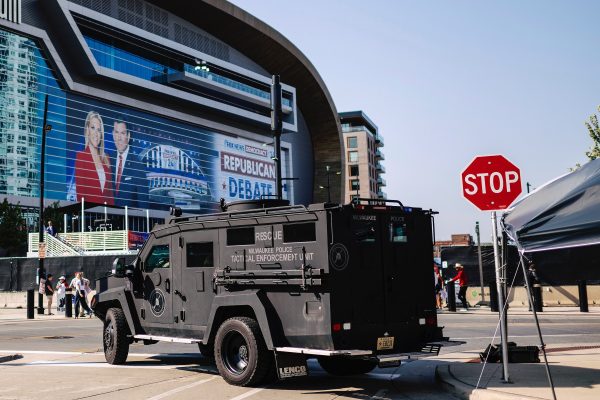At 2 a.m. it was easy to forget that I was in the Wisconsin Capitol to protest Governor Walker’s budget-repair bill, which threatens, among other things, the collective bargaining rights of Wisconsin’s many public employee unions. Hours of drumming in the rotunda had finally given way to relative quiet, and I was trying to use the respite to translate Beowulf. But the guy three blankets over continued to yap about his plan to manufacture technologically advanced hammocks (which he pronounced “ham-hocks”). I abandoned the Old English homework, balanced my laptop on my knees, and prepared my testimony for the ongoing ‘people’s hearings’ run by Assembly Democrats.
What began for me as a straightforward visit to the state legislature to voice my displeasure became a mass sleepover with thousands from across the state. My penchant for all-nighters turned out to have political utility.
I am a Ph.D. student in the English department of the University of Wisconsin-Madison and a member of the Teaching Assistants Association (TAA), the graduate employee union that protects job conditions such as caps on the number of students allowed to enroll in discussion sections. These conditions enable the university to be effective.
On Tuesday February 15, after an evening seminar, I convinced my officemate to drive me and another grad student to the Capitol to join a queue of citizens lined up to offer testimony at the hearing, where the bill was being debated. I left my purse in her car, telling her it would take five minutes to put our names on a list. After I went inside, I learned that Republicans were attempting to cut off the line of speakers. I remained and spent more than an hour with the crowd imploring the committee, “Let us speak!”
Eventually, my fellow students and I retired to the first floor rotunda, where we cheered the remaining speakers broadcast on large TVs and posed for pictures for a professor who dropped by to see us. Though we’d all brought work to do, reading was impossible, since every movement on the TV, every Twitter update, seemed urgent. At 4 a.m., realizing I had only a winter coat to sleep on, I went home.
I returned the next night with friends. The demonstrations were cheerful, almost festive, even in their urgency. Madison’s trademark quirkiness was on display in the signs carried during daytime protests and lining the rotunda walls. Many placards carried replicas of Star Wars Imperial Walkers. A girl in a fruit costume declared, “This bill is bananas.” A young college student in a makeshift toga of candy necklaces carried a sign that read, “Even I look less ridiculous than Scott Walker.”
We camped at the same spot as the previous night in the rotunda and set up a sort of satellite grading office. Around midnight, someone showed up with boxes of fruit and vegetables for protestors; I got to hand one of my own students an apple. I typed a few notes on my laptop while trading public-speaking fears with a nursing student. He needed to get in on our departmental monopoly of one of the only working power outlets. From 3 a.m. to 9:30 a.m., I waited to speak in the people’s hearing room, listening to what this bill meant to high school students who spoke on behalf of their teachers, to a female firefighter, to graduate students in classics who ended their two minutes of speech with declarations of “Carta delenda est”—“the bill must be destroyed.”
When it was my turn to speak, I talked about the ways in which I felt like I was failing my students—not just because I hadn’t finished grading their papers or because I wouldn’t attend lecture that day on account of the teach-outs, but because I am a literature and writing instructor who teaches that words have the power to do and represent things, and, at that moment, I could neither find the words to express the hope and unity I felt with other protesters, nor fully believe that my words in the testimony room would actually affect the political situation.
When I left the building after my testimony, public school teachers from around the state who had risked their jobs to call in sick en masse thanked me for keeping the building open by continuing the public hearings. As I waited for the bus, men driving a fire truck spotted the blanket under my arm and waved.
• • •
Governor Walker’s bill seems designed to be divisive. Firefighters and police officers were spared from the clause that would affect other public-employee unions. Important provisions would harm some groups, particularly health-care and mental-health workers, more than others. Additionally, the proponents of the bill have pitted public-sector employees against their private-sector equivalents in an imaginary battle over tax dollars. But the bill that divides instead managed to unify thousands of disparate Wisconsinites so completely that they were willing to sleep together on cold stone floors for two weeks—noise, crowds, and all.








